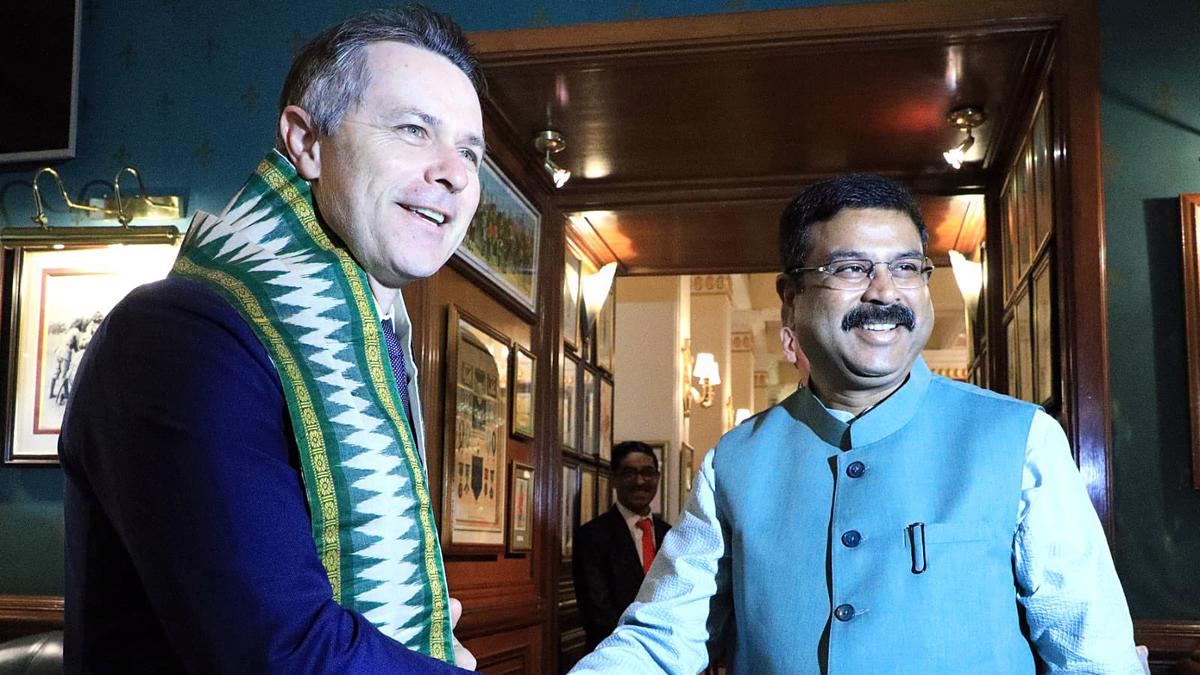- Deakin University and the University of Wollongong, both in Australia, will establish campuses in Gujarat International Finance Tec-City (GIFT City).
- The move is part of the Indian government’s efforts to promote internationalisation and collaboration between Indian and foreign universities.
Procedures for Universities Visiting India
- In the beginning, the approval process for establishing a campus in India will be entirely online. Interested institutions must apply through the UGC portal and pay a non-refundable fee before submitting documents.
- After the applications are received, the Commission will form a committee to review them based on the following criteria:
- The institution’s credibility
- Programmes that the institution will offer
- Their potential to improve educational opportunities in India
UGC (Regulations for the Establishment and Operation of Campuses of Foreign Higher Educational Institutions in India) 2023: Answers to key questions
- UGC approval is required: All foreign universities that wish to establish a campus in India must first obtain permission from the UGC.
- Reputable institutions: To establish a campus in India, foreign universities must either be in the top 500 or be “highly regarded” in their respective countries (if the varsity does not participate in global rankings). If their overall ranking is between 500 and 100, but their subject-wise ranking is higher, the institutions will be allowed to establish campuses only for those ranked subjects.
- Quality control: Furthermore, the UGC reserves the right to inspect these Indian campuses of foreign HEIs at any time, and they will be subject to anti-ragging and other criminal laws.
- Offline classes only: All foreign universities that open branches in India will be allowed to conduct offline classes only, which means that foreign universities can only offer full-time programmes in physical mode.
- Freedom to select admission process, fee, and faculty: All foreign universities will be free to design their own admission process. The universities must, however, ensure that the “quality of education imparted at their Indian campuses is on par with their main campus.”
- Admission is open to all: Foreign higher education institutions will be able to enrol both Indian and international students on their Indian campuses.
- International funds transfer: To avoid chaos in funds transfers, all funding matters will be governed by the Foreign Exchange Management Act of 1999.
- Students’ interests must be protected: FHEI may not discontinue any course or programme or close the campus without the commission’s prior approval. If a course or programme is interrupted or discontinued, the parent entity is responsible for providing an alternative to the affected students.
- Equivalence with degrees conferred by Indian HEIs: The qualifications conferred on students at the Indian campus must be recognised and treated as equivalent to the corresponding qualifications conferred by the FEHI at the main campus in the country of origin.
- Securing India’s national interest: FEHIs shall not offer any programme or course that jeopardises India’s national interest or higher education standards in India. The operation of FEHIs shall not be incompatible with India’s sovereignty and integrity, the state’s security, friendly relations with foreign states, public order, decency, or morality.
Why is this being done?
- Domestic enrollment is increasing: India has over 1000 universities and 42,000 colleges. Despite having one of the world’s largest higher education systems, India’s Gross Enrollment Ratio (GER) in higher education is 27.1%, ranking among the lowest in the world.
- Education quality improvement: The QS World University Rankings 2022 reflect the lack of quality in Indian education. With a ranking of 177, IIT Bombay was the highest-ranking Indian institute on the list. Only eight Indian universities made the top 400 list.
- Preliminary discussions have begun with the GIFT City authorities and the regulator to establish facilities at the GIFT International Financial Services Centre, with London Business School, King’s College in London, the University of Cambridge, and New York University.
Benefits of the move
- Generation of human capital: This move would complement efforts to provide high-quality human capital to India’s financial services industry.
- Reduced overseas spending: Indian students’ overseas spending is expected to increase from $28 billion this year to $80 billion by 2024.
- Reduce FOREX spending: In addition to encouraging quality competition, international branch campuses can help to reduce foreign exchange outflow.
- Education attracts opportunities, which prevents brain drain. The Atmanirbhar Bharat initiative will help to retain domestic talent. Over the last seven years, over eight lakh Indians have given up their citizenship.
- Increase India’s soft power: Allowing foreign universities into the country can boost India’s soft power by providing additional impetus to the government’s Study in India programme, which aims to attract foreign students.
Challenges
- Regulatory issues: The following factors may discourage foreign higher education institutions from investing in India:
- A multi-tiered regulatory framework governs various aspects of higher education.There is no single regulatory body overseeing collaborations/investments.
- To operate in India, multiple approvals are required.
- Issues with implementation: While the NEP has taken the necessary steps to strengthen the education sector and pave the way for a globally compatible education system, its implementation has been slow and unclear.
- Increased likelihood of brain drain: The GoI faces a policy challenge in facilitating such collaborations in such a way that Indian talent chooses and is incentivized to stay in India, and Indian educational infrastructure is developed to meet global standards.
@the end
- The provisions in the NEP demonstrate the GoI’s intent with regard to international universities establishing campuses in India.
- However, much clarity is required before proper implementation can take place.
Source: https://www.livemint.com/news/india/two-australian-universities-to-open-campuses-in-gujarat-s-gift-city-11677743120441.html#:~:text=The%20two%20universities%20that%20are,their%20campuses%20in%20the%20city.

